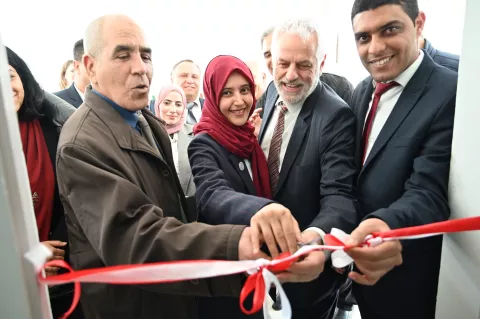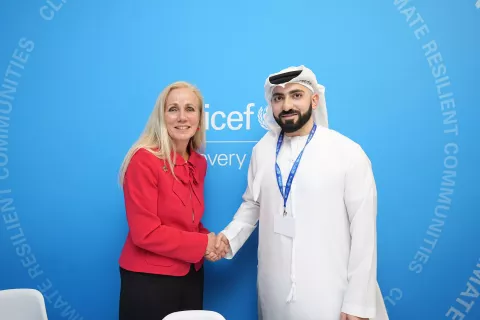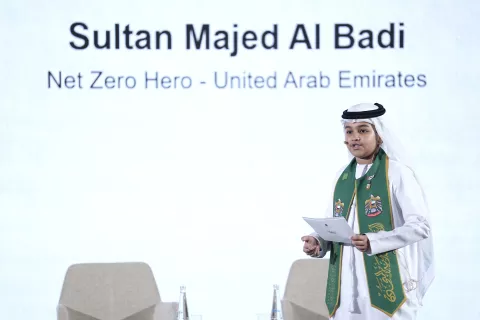KSRelief extends its support to UNICEF to provide children with severe and mild disabilities an integrated package of education, health and protection services
- Available in:
- English
- العربية
Beirut, 3 December 2020 – The King Salman Humanitarian Aid and Relief Center (KSRelief) reaffirmed its commitment to the most vulnerable children living in Lebanon by extending an emergency aid of US$ 1.2 million to support UNICEF’s inclusion programme in Lebanon. The grant will improve the access of refugee children with severe and mild disabilities to an integrated package of education, health and protection services and improve their community participation and social inclusion.
“Like all children, children with disabilities have the rights to access quality services to be able to contribute to society,” said Yukie Mokuo, UNICEF Representative in Lebanon. “Our partnership with the King Salman Humanitarian Aid and Relief Center reflects our joint commitment to giving all children the same opportunities to succeed and thrive in their schools and communities”.
Through this programme, KSRelief aims to integrate children with disabilities into society by giving them, and their families access to education, protection, and health services. Ultimately, the programme also seeks to maintain its sustainability by developing universal guidelines on how to care for children with disabilities,” said Dr Aqeel Al Ghamdi, KSRelief Assistant Supervisor General for Planning and Development
“KSRelief’s first grant to UNICEF in Lebanon will benefit some of the most vulnerable children in the country,” said Eltayeb Adam, UNICEF Representative to the Gulf Area. “It is a result of commitments from UNICEF and KSRelief to deepen and expand collaboration and improve the lives of children around the world, the most disadvantaged first.”
This grant will benefit refugee children with severe and mild disabilities between the age of 3 to 18 years old to receive an integrated package of special education, therapies, rehabilitation and protection services and well as provide awareness and sensitization to their parents and caregivers. Parent engagement curriculum will also be developed.
The types of disabilities include but are not limited to, mild and severe intellectual disability (impairment of cognitive functioning and functional life skills), motor disability (e.g. the children has significant difficulty walking, sitting in the upright position, using hands, etc.), combined disability, hearing impairment (deaf or very high level of hearing impairment), autism, speech impairment (cannot speak or has significant difficulty in producing and/or comprehending speech), etc. Whenever possible, the children will be referred to mainstream services, in cooperation with non-formal education (NFE) partners and schools, in line with the inclusive education approach.
Media contacts
About UNICEF
UNICEF promotes the rights and wellbeing of every child, in everything we do. Together with our partners, we work in 190 countries and territories to translate that commitment into practical action, focusing special effort on reaching the most vulnerable and excluded children, to the benefit of all children, everywhere.
Follow UNICEF Gulf Area Office on Twitter, Instagram and Facebook




